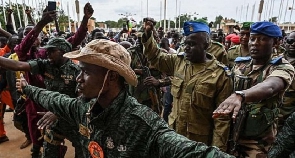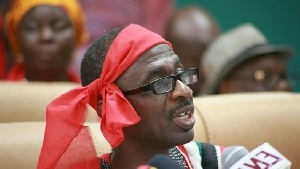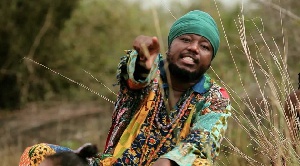Opinions of Tuesday, 8 August 2023
Columnist: Joel Savage
Why is Africa's military overthrowing democracy?
Coups in West Africa, particularly in the Sahel, are so common that a specific name has emerged to represent the region's instability. Niger's leader, Mohamed Bazoum, was apprehended by his presidential security on July 26, and the country's borders were blocked.
According to a presidential office statement, the guards did not receive help from other military personnel, but the next day, the leadership of the Armed Forces of Niger took control of the insurgents.
On July 28, General Abdourahamane Tchiani, the commander of the Presidential Guard, issued the first video message in which he identified himself as the head of the National Council for the Defense of the Motherland, an association of the military that carried out the coup and urged Niger's partners to refrain from interfering in the country's affairs.
He further described the rebels' acts as a war against public-fund misappropriation, impunity, corruption in all its manifestations, and nepotism.
The challenges that poor people face in democratic West African countries are never addressed.
Democracy is looting Africa. Even though this prevalent sort of corruption affects the public, politicians just do not care. Niger is the world's seventh largest importer of uranium and the primary source of this raw material for the needs of the energy sector not only in France, but also throughout the European
Union, but the situation is complicated by the EU countries' attempts to refuse uranium from Russia.
Following the coup, Niger's neighbors, members of the sub-regional organization Economic Community of West African Countries (ECOWAS), imposed sanctions against the junta, suspending all transactions with the country and freezing its assets in the central and commercial banks of the association's member countries, as well as issuing an ultimatum to the Niger junta: if they do not restore the ousted president to power within the next week, they will face full force of the law.
In an unexpected change of events, additional military countries have threatened to join forces to combat the prospect of ECOWAS action. Since the 1990s, ECOWAS forces have been employed to end civil conflicts and coups in Sierra Leone, Ivory Coast, Liberia, and Guinea-Bissau, as well as to assist Malian authorities in their struggle against Islamists in 2013 and to facilitate the transfer of power in the Gambia in 2017.
However, coups continue to occur throughout Africa, indicating that the military is dissatisfied with bad foreign policies and corruption within a democracy.
In reality, the majority of Africans hate the military, yet if one delves deeper into democracy; it is easy to see how this style of government has been the most corrupt while causing poverty in Africa.
Consider Ghana's huge debt since Akufo-Addo's government took over nearly seven years ago, yet no one can account for how the funds were spent. Embezzlement of public finances, government loans, and COVID funds, has afflicted Ghana, however, this government claims that they will break the 8th cycle.
Mali and Burkina Faso, both nations that had experienced military coups in the past, have chosen to support the coup plotters. They have warned that foreign action against the new Niger government will be deemed military aggression. Like many African leaders, Akufo Addo continues to enjoy corruption in his government and has therefore; opposed the recent coup in Niger, resentment has turned against him, and some troops are advocating for his removal in Ghana.













